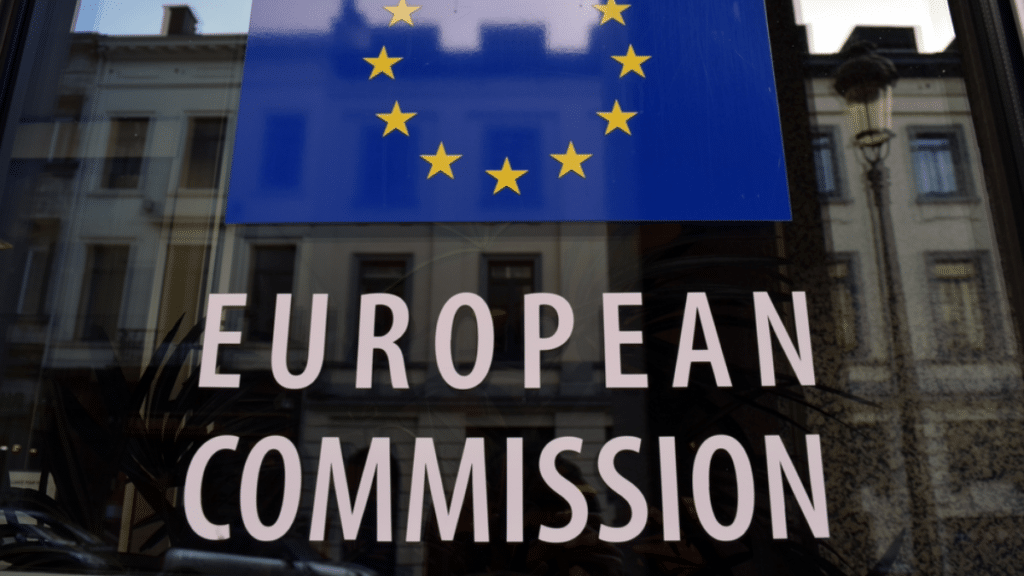European Commission Seeks Public Input on Proposed Digital Services Act Guidelines to Enhance Election Integrity
Gabby Miller / Feb 8, 2024
As more than two billion people worldwide prepare to head to the polls in 2024, the European Commission says it is gearing up to protect election integrity online using the full force of its Digital Services Act. On Thursday, the Commission opened up a month-long public consultation period seeking input on the first ever draft guidelines that the DSA will present to Very Large Online Platforms and Search Engines (VLOPs and VLOSEs) on mitigating election-specific systemic risks.
Under Article 35 of the DSA, the Commission can invite relevant parties to participate in drawing up codes of conduct that account for challenges regarding illegal content and systemic risk, particularly on issues like competition and protecting personal data. The announcement seeks examples of mitigation measures relating to election-specific risks, generative AI content, electoral events, and specific guidance for the European Parliament elections in June.
“With the Digital Services Act, we have concrete tools to work together with online platforms,” said Margrethe Vestager, Executive Vice-President for a Europe Fit for the Digital Age, in the announcement’s press release. “We can address the emerging online risks to electoral processes, like deep fakes. So we can enable people, in a safe way, to engage, discuss and make up their minds without illegal interference.”
The DSA, which has been rolled out in stages, will go into full effect on Feb. 17, 2024. Currently, one of the biggest challenges and criticisms the regulatory regime faces is how to define platforms’ and search engines’ “systemic risk” to civic discourse. Others are concerned that the Commission’s approach to systemic risk could hamper freedom of expression if it is not carefully managed.
- Related reading: Digital Services Act Roundup: July 2023 – January 2024
The first batch of systemic risk reports, drawn up by each designated platform and search engine, were submitted to the European Commission last year, but have yet to be made public. However, the Commission’s Directorate-General for Communications Networks, Content and Technology released a report in the fall presenting a potential approach to a DSA “risk management framework” for Russian disinformation campaigns.
Many of the designated platforms and search engines are well-aware of the potential threats that each unique election poses, and have released their companies’ approaches to the 2024 elections.
Last November, Microsoft, which owns the designated Very Large Online Search Engine Bing, published its “Election Protection Commitments” alongside a Microsoft Threat Analysis Center report on “Protecting Election 2024 from Foreign Malign Influence.” That same month, Meta, which owns Facebook, Instagram, Threads, and WhatsApp, announced its own plans for the elections, including its ad transparency measures and election-related content policies and Community Standards. One of Meta’s most lauded safeguards used in previous years – blocking all new political, electoral, and social issue ads during the final week of an election campaign – will, it appears for now, still only apply to the US. And only a brief mention of Meta’s EU-specific electoral efforts was made in a blog post last August from its “Newsroom for Europe, Middle East and Africa” detailing new features and transparency measures Meta added to comply with DSA obligations.
Google, which received “very large” designations for both its search engine and platforms, including YouTube, Google Maps, Google Shopping, and Google Play, has so far only released US-specific election plans. X, on the other hand, hasn’t released a plan at all, instead opting to fire its Election Integrity Team last September and gut nearly 80 percent of its trust and safety.
- Related Reading: Elon Musk Will Test the EU’s Digital Services Act
Regardless of designated tech companies’ electoral plans, the European Commission plans to require electoral safeguards made in the image of the DSA, rather than a handful of mostly Silicon-Valley based tech executives and billionaires. While there will surely be growing pains as the Commission determines how to best guide platforms and search engines on electoral risk mitigation, this public consultation period will be key in laying the draft guidelines groundwork for years to come.
“With the Digital Services Act, Europe is the first continent with a law to address systemic risks on online platforms that can have real-world negative effects on our democratic societies. 2024 is a significant year for elections,” said Thierry Breton, Commissioner for Internal Market, in the Commission’s announcement. “That is why we are making full use of all the tools offered by the DSA to ensure platforms comply with their obligations and are not misused to manipulate our elections, while safeguarding freedom of expression.”
Authors
